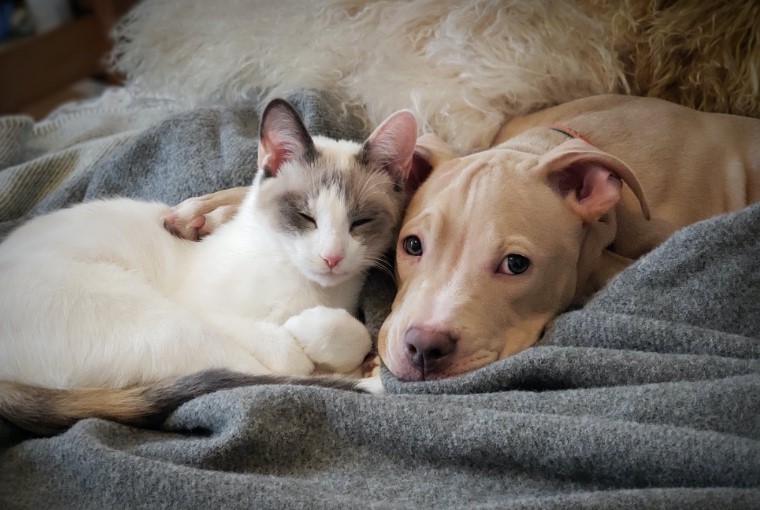
Animal Care And Tips
Introduction
Taking care of animals is a responsibility that requires knowledge, patience, and love. Whether you have a dog, cat, bird, or any other pet, providing proper care is essential for their well-being. In this article, we will explore various aspects of animal care and share valuable tips to help you become a responsible and loving pet owner.
1. Providing a Safe Environment
Creating a safe environment is crucial to ensure the health and safety of your pet. Remove any potential hazards such as toxic plants, chemicals, and small objects that could be swallowed. Secure fences and gates to prevent escape, and use childproof latches to keep curious pets away from cabinets and harmful substances.
2. Proper Nutrition
A balanced diet is vital for your pet’s overall health. Consult with a veterinarian to determine the appropriate type and amount of food for your animal companion. Provide fresh water at all times and avoid feeding them harmful foods such as chocolate, onions, grapes, and certain types of nuts. Regularly clean their food and water bowls to prevent bacterial growth.
3. Regular Exercise
Exercise is essential for pets to maintain a healthy weight and stimulate their minds. Dogs require daily walks and playtime, while cats can benefit from interactive toys and climbing structures. Engage in activities that suit your pet’s breed, age, and energy level to keep them physically and mentally active.
4. Grooming and Hygiene
Regular grooming promotes a healthy coat and prevents matting, skin infections, and other issues. Brush your pet’s fur to remove loose hair, bathe them when necessary using pet-friendly shampoos, and trim their nails to avoid overgrowth. Clean their ears and teeth regularly to prevent infections and dental problems.
5. Veterinary Care
Routine veterinary visits are essential for preventive care and early detection of potential health issues. Schedule regular check-ups, vaccinations, and parasite prevention treatments. Keep track of your pet’s medical records, including vaccinations and any medications they may require.
6. Socialization and Mental Stimulation
Animals are social creatures and benefit from regular interaction with their owners and other animals. Provide opportunities for socialization by introducing them to new people, animals, and environments. Engage in activities that mentally stimulate your pet, such as puzzle toys, training sessions, and interactive games.
7. Training and Obedience
Training your pet is important for their safety and the well-being of those around them. Teach basic commands such as sit, stay, and come, using positive reinforcement techniques like treats and praise. Consider enrolling your pet in obedience classes to enhance their training and socialization skills.
8. Handling and Restraint
Proper handling and restraint techniques are essential when interacting with your pet. Learn how to hold them securely and gently, especially when administering medications or grooming. Use appropriate tools such as leashes, harnesses, and carriers to ensure their safety during transportation.
9. Recognizing Signs of Illness
Being able to recognize signs of illness in your pet is crucial for their well-being. Monitor their behavior, appetite, and bathroom habits for any changes. Common signs of illness include lethargy, loss of appetite, vomiting, diarrhea, excessive thirst, and respiratory difficulties. If you notice any concerning symptoms, consult your veterinarian promptly.
10. Common Health Issues
Animals can experience various health issues throughout their lives. Some common health problems include allergies, dental disease, obesity, ear infections, and arthritis. Educate yourself about these conditions to recognize their symptoms and seek appropriate veterinary care.
11. Preventative Measures
Prevention is key when it comes to maintaining your pet’s health. Ensure they are up to date on vaccinations, receive regular flea and tick treatments, and practice proper parasite control. Spaying or neutering your pet not only prevents unwanted litters but also reduces the risk of certain cancers and behavioral issues.
12. Traveling with Pets
Traveling with pets requires careful planning and preparation. Ensure your pet has a comfortable carrier or crate for transportation and pack their essentials, including food, water, toys, and bedding. Research pet-friendly accommodations and airlines, and familiarize yourself with local regulations and requirements.
13. Pet-Friendly Home Modifications
Make your home pet-friendly by taking certain precautions. Secure loose cords and wires to prevent chewing hazards, use childproof latches on cabinets containing potentially harmful substances, and install pet gates to restrict access to certain areas. Provide scratching posts for cats and designate a safe space for your pet to retreat to when needed.
14. Conclusion
Caring for animals is a rewarding experience that requires dedication and compassion. By following these tips, you can ensure the well-being and happiness of your beloved pets. Remember to provide a safe environment, proper nutrition, regular exercise, grooming, and veterinary care. Embrace the opportunity to bond with your pet through training, socialization, and mental stimulation. By being a responsible pet owner, you contribute to the overall welfare of animals.
FAQs
- Q: How often should I take my pet to the veterinarian? A: It is recommended to schedule regular check-ups at least once a year or as advised by your veterinarian.
- Q: Can I feed my pet human food? A: Some human foods can be toxic to pets. It is best to consult with your veterinarian to determine a suitable diet for your pet.
- Q: How can I prevent my pet from becoming overweight? A: Provide a balanced diet, monitor portion sizes, and ensure regular exercise to maintain a healthy weight for your pet.
- Q: Should I groom my pet at home or take them to a professional groomer? A: This depends on your pet’s needs and your comfort level. Some pets require professional grooming, while others can be groomed at home with proper tools and techniques.
-
Q: What should I do if my pet shows signs of illness? A: If your pet exhibits concerning symptoms, it is best to consult your veterinarian for a proper diagnosis and treatment.
Partner Site : E-Sport News, Health Injury, Medical Cannabis, Finance Hold, Online Education, Travels Around World, Pet Daily Nursing, Beauty Women, Physical Therapy, House Design Plan



